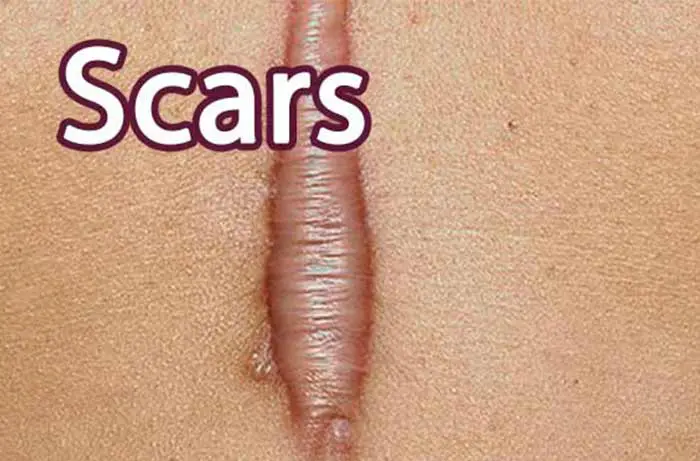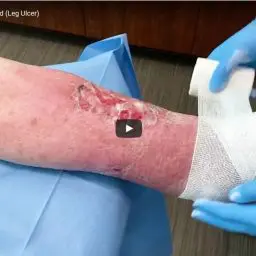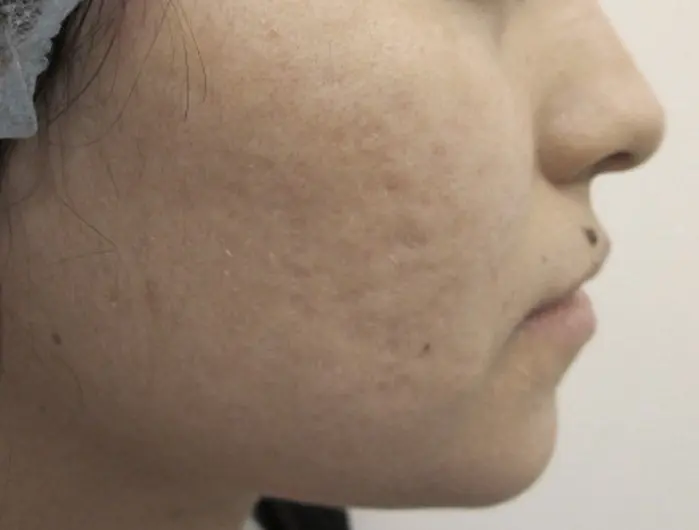Scars
Medical Dermatology
Scars form as part of the body’s natural response to healing following damage to the skin. Almost all trauma to the skin results in some degree of scarring except for very minor injuries.
Scars are composed of collagen, a fibrous protein found naturally in the skin, but unlike normal skin in which collagen is randomly cross-linked, the collagen in a scar is deposited in straight lines resulting in reduced functionality. All scars are benign but can become itchy, painful, or cosmetically concerning. Scars following major trauma or severe burn can inhibit movement- surgery can be used to improve functionally in these cases.
There are many types of scars. A hypertrophic scar is a raised scar, often red or flesh colored, that is the result of an overproduction of collagen during the healing process. Hypertrophic scars, unlike keloid scars, do not grow beyond the boundaries of the original wound. A keloid is a raised scar that extends beyond the original wound and has the appearance of a tumor although, like all scars, it is benign. Keloids are more common in darker skin tones and have a genetic component, though the exact cause is unknown. An atrophic scar is created when the tissue beneath the skin such as fat of muscle is lost, resulting in a sunken appearance. Acne scars and stretch marks fall into this category.
All scars can be improved with treatment. The most effective treatment depends on the type of scar; hypertrophic scars generally respond very well to many treatment options, but keloids and atrophic scars are more difficult to treat – keloids are prone to reoccurrence and atrophic scars do not respond well to most treatments, especially sunken and/or white scars. Common scar treatments include surgical revision, dermabrasion, chemical peels, steroid injections, laser therapy, and fillers. If you have a scar that is bothering you have it evaluated by your dermatologist to determine what category it falls under and the most optimal treatment plan.






















